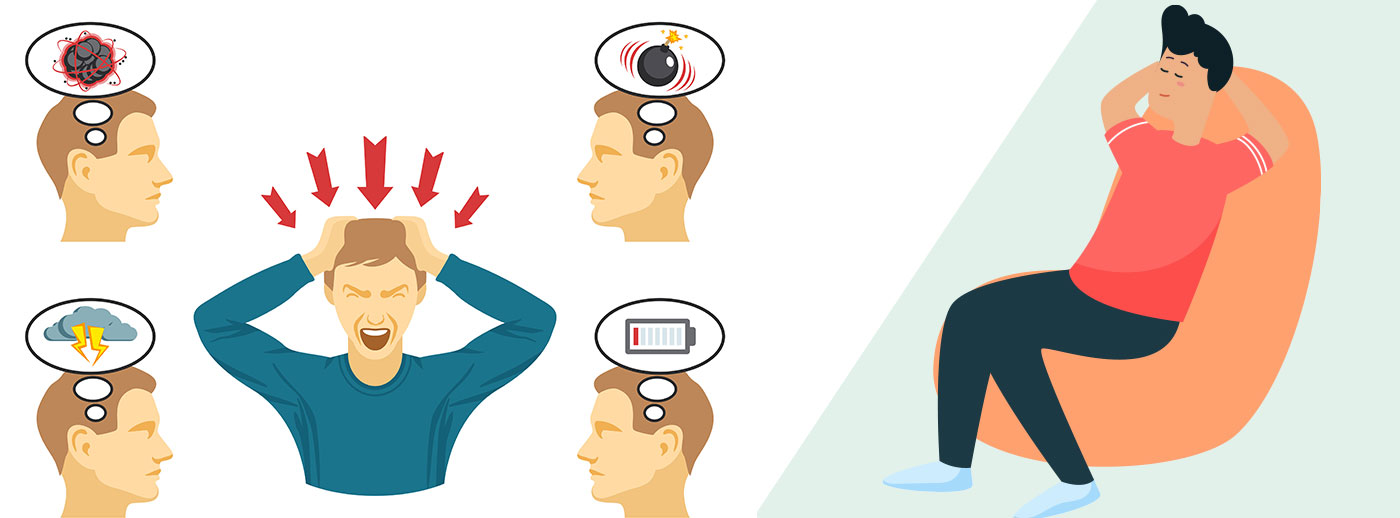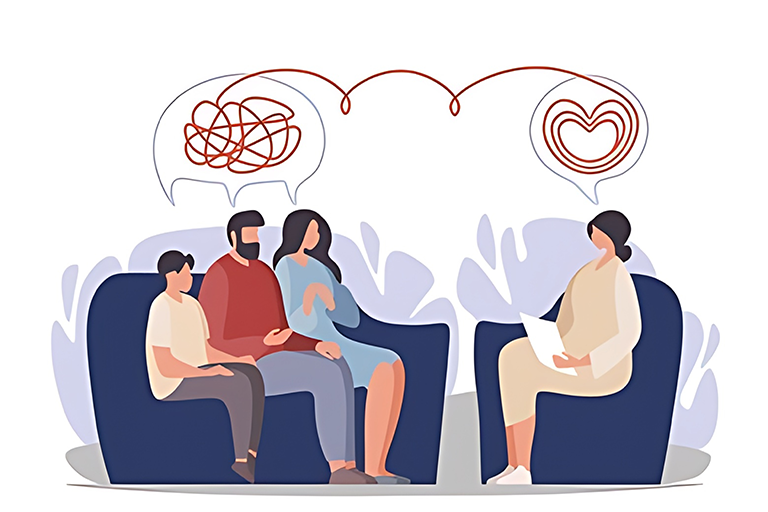Close

Stress
Stress is an adoptive response to a situation that is perceived as challenging or threatening to a person’s well-being. Stress shows itself in a number of ways. When we fail to release stress by coping with life’s situations, it builds up until we either explode or collapse. The consequences of stress can cause specific disorders in both mind and body. In addition to raising levels of the stress hormones, adrenaline and corticosterone, a build-up of stress can cause headaches, digestive problems, eating disorders, insomnia, fatigue etc. It also causes psychological and behavioral changes such as anger, irritability, alcoholism etc.
Stress Management
It is the ability to maintain control when situations, people, and events make excessive demands. It is an essential step for us to take once we have determined that we are facing stressful situations in our life, regardless of the cause. Stress management has to do with discovering how we can avoid stress when possible and cope with the stress we can’t avoid.
Techniques of Stress Management
Self-hypnosis: It is a practical and effective technique for relaxing deeply. It Can be used with or without affirmations, depending on what one wants to achieve. At first one should find a place where he would be comfortable to sit down. Then one must close the eyes and try to relax one’s muscles. A good way of doing this is to use imagery and visualization. One can also move on to use suggestion through affirmations.
Developing a hobby:A hobby is an activity or interest that is undertaken for pleasure, typically done during one’s leisure time. In order for us to overcome the stress that we are feeling, we need to have a natural outlet of some sort or another. Having a hobby can be an excellent way to do this.
They help to take us into another world where the outside problems that we may be experiencing do not exist. For example, having a creative hobby, such as scrap booking or needlepoint can help us to focus our attention on things that we enjoy, rather than focusing it on all of the things that we need to do which are not getting done.


Meditation: refers to any of a family of practices in which the practitioner trains his or her mind or self-induces a mode of consciousness in order to realize some benefit. Meditation is a process in which a person attempts to concentrate his mind by focusing on an object or an idea by excluding all the other objects and ideas from his mind.
The point of focus could be one’s own breath, touch sensation, visual sensation, thoughts, chanting mantras or the holy words like ‘OM’. By keeping the mind focused on any of the above things the person is able to get rid of all the other objects, ideas and thoughts out of his mind. By doing this, the person feels relaxed.
Yoga Nidra: It is a sleep-like state that occurs with practitioners of meditation. It includes relaxation and guided visualization techniques as well as the psychology of dream, sleep and yoga. The practice of yoga relaxation has been found to reduce the autonomic symptoms of high anxiety such as headache, giddiness, chest pain, palpitations, sweating.
What significance does stress management have?
You have access to several methods for stress management that can help you reset and calibrate your alarm system. Your body and mind can adapt with its assistance (resilience). Your body might be on high alert all the time without it. Chronic stress can eventually cause major health issues.
YOUR Confidant provides online as well as face to face counselling sessions for understanding, healing and experiencing the self. It also provides online and face to face training for the services it provides. You can book an appointment for counselling sessions
